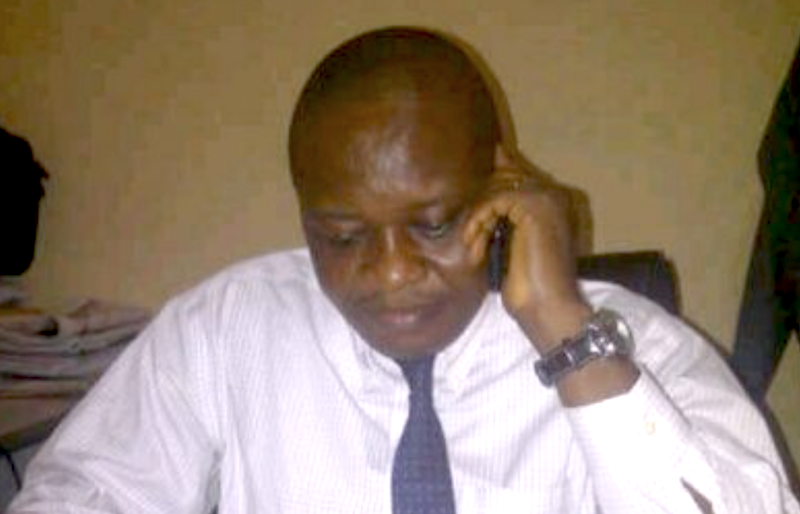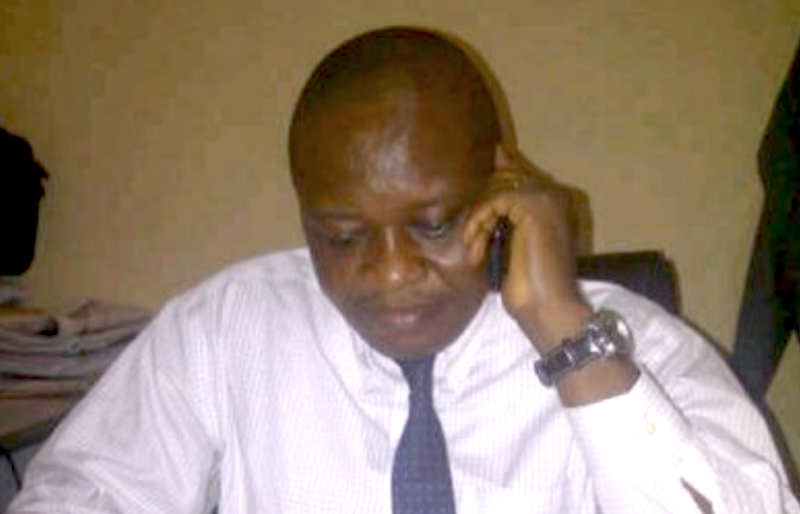I supported Olanipekun Olukoyede’s war against spraying of the Naira at parties and how it was trampled upon. It is abhorrent, disdainful and insulting to our collective psyche. Rightly, his Economic and Financial Crimes Commission (EFCC) moved against the practice.
A number of people were invited for questioning over what he called the ‘Naira abuse’. Some were actually jailed while others opted for plea bargain. Apart from a few persons nabbed at burial ceremonies, a common denominator of the rest questioned is that they are all in the entertainment industry or ‘celebrities’ as they are called.
From Cubana Chief Priest, AY, E-Money and a Muhammad Kabir said to be a Kaduna-based content creator on Tik Tok, they all had a chat with the anti-graft agency. Their sin was ‘abuse of the Naira’ more popularly called ‘spraying’.
The defining moment of EFCC’s crusade will come when Olukoyede decides on what to do with his invitation to High Chief Government Oweizide Ekpemupolo, ex-militant and major federal government contractor on securing pipelines in the Niger Delta. On account of a video on social media where Tompolo as the ex-militant is more popularly known was seen ‘sprayed’ while performing religious rites in his domain, the EFCC ‘invited’ him. It is the most daring move in Olukoyede’s campaign against ‘naira abuse’.
But the abuse of the currency has a different interpretation by Nigerians from what fancies the EFCC. Recently, BudgIT, the civil society organisation, revealed that the National Assembly inserted 11,122 projects worth N6.93 trillion in the 2025 federal budget. That is not strange. What has caught the attention of Nigerians is that a total allocation of N393.29 billion was set aside for the installation of 1,477 streetlights by members of both the green and red chambers.
That, to Nigerians, is the real abuse of the Naira. It is one huge street party where every federal lawmaker will be ‘sprayed’ N266 million for every street light installed across the country. It is one huge and endless street party. My problem with the Naira abuse party is not in the obscene amount set aside for each street light which, according to knowledgeable people on the project, can be executed with maximum N5 million.
NASS members are used to such abuse of the Naira. My problem is with EFCC’s definition of ‘naira abuse’. To Olukoyede, the problem with the Naira is its ‘spraying’ by partying folks. The budget padding even when it is done with so much impunity and ignominy is nothing to worry about. It is when ordinary folks spray a few naira notes at social events.
But I think I understand his dilemma. How can budget padding be proved or prosecuted? Yes, a standard street lamp may cost less than N5 million per unit.
In the 1920s America, there was a certain Al Capone. Al Capone ruled a crime empire that controlled everything – gambling, prostitution, bootlegging, bribery, narcotics trafficking, robbery, “protection” rackets, and murder. And it seemed that law enforcement could not touch him. The FBI and other anti-crime agencies knew all the crimes associated with Al Capone, but could not get round to secure enough proof to get a conviction.
He lived large, had friends in the Police and taunted the security agencies with his seeming invisibility. Until the Police decided to think outside the box. Al Capone had a lot of money and spent lavishly. But his tax returns were at odds with his lifestyle.
When he was initially charged with under payment of tax, he jeered the Police with his famous proclamation that “tax evasion is a national pastime”. This was true then and moreso today. But unlike other tax evasion cases, the law wanted Al Capone to spend time. After his initial plea bargain was rejected by the judge, he got 11 years. And that was the beginning of the end for him.
The real challenge is in proving that the ones to be installed may not even be worth more than the N266 million signed into law by the President. In this season of climate change, the lawmakers may have invented street lights that could solve the climate change challenge.
I wonder how Olukoyede and his men sleep soundly with the feeling of accomplishment when ordinary pawns are the only ones that get jailed. Does the N266 million per street light budgeted by senators and members of the House of Representatives not constitute abuse of the Naira. It’s true no physical spraying of the currency is done out there, but what they set aside for themselves is one huge obscene street party. The amount to be ‘sprayed’ whenever a street light is put up is dirty and salacious.
The fact that President Bola Tinubu expeditiously signed the 2025 budget with that expenditure embedded as part of the law on what should be spent gives the EFCC grand cover. If the Commander-in-Chief is cool with it, why should I be bothered to go after big fishes in the name of fighting naira abuse may have been how Olukoyede rationalised the brazen heist by the National Assembly.
But if he wants Nigerians to be taken seriously with his campaign against ‘Naira abuse’, let’s see him make good his statement that nobody is above the law as he claimed when he justified his ‘invitation’ to Tompolo for questioning. The high chief is not known to venture out of his kingdom.
I’m not sure how long the EFCC chief can wait for his ‘summon’ to be honoured. Maybe he will visit Tompolo. That will be quite interesting. Meanwhile, federal lawmakers will have their distinguished spraying party for installing 1,477 street lights!


